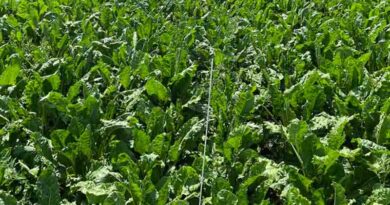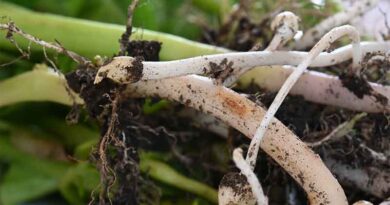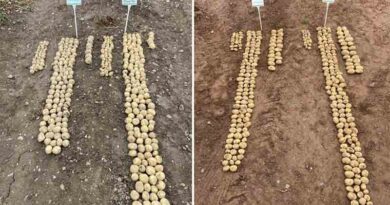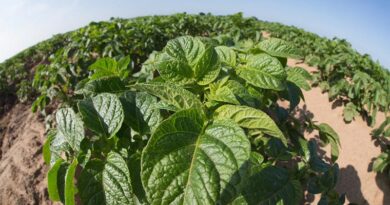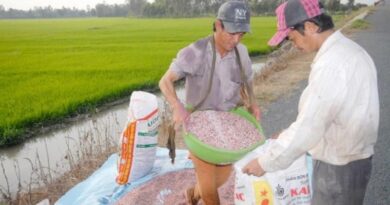Sugar beet benefits from Quantis heat stress relief
13 June 2022, UK: New research to evaluate the effects of heat stress on sugar beet crops could pioneer ways to use the biostimulant Quantis to help plants better cope with changing climatic conditions.
Field trials over the past two seasons have shown significant yield increases with Quantis treatments prior to heat stress events, reported Syngenta Technical Manager, Andy Cunningham.
“The effect of Quantis to enable potato plants to deal with high temperatures and associated stresses has been scientifically studied and widely tested in the field,” he said.
“When it has been tried on a field scale in sugar beet the yield responses have been equally good, if not better.”
Andy’s trials have revealed the biostimulant’s action within the plant has resulted in larger root size and higher sugar concentration, even when there have been no physiological differences seen in the crop.
Growers have reported greater effects from higher rates of application or more frequent Quantis treatments.
In potatoes, scientific research at the University of Nottingham has demonstrated plants can be effectively primed to better cope with heat stress and to maintain essential photosynthetic activity that would otherwise be decreased or shut down.
“Further trials are planned this season in sugar beet to pinpoint the optimum times for application around the occurrence of heat events,” he advised.
“Treatment timing will be based on the Heat Stress Event forecasting tool developed to assist potato growers, but with equal value to tailor applications in sugar beet and other crops.” Quantis research work is also being undertaken on maize and cereal crops.
Lincolnshire sugar beet grower Richard Ivatt was highly impressed with the results last season from field scale trials of Quantis on his drought-prone light land.
Although there were no visual differences in the growing crop, a single application, made on 12 July – just before a dry period – yielded an extra 1.78 t/ha from an application at 1 l/ha and, at 78 t/ha, a 2 l/ha rate gave 3.64 t/ha more, compared to untreated.
Analysis by British Sugar showed the Quantis treated roots also had a slightly higher sugar content.
The trials lifted through the centre of the field, across a full 48-row tramline width and recorded across the farm’s weighbridge, gave a truly representative result and were replicated in two different fields, he reported.
In the second field the 2 l/ha rate of Quantis also gave a 5% yield uplift, at 99.8 t/ha, along with a 2.5% increase from the 1 l/ha rate, at an extra 2.3 t/ha, compared to untreated.
“With the increased value of sugar beet this season, there’s potential for an even greater payback,” he predicted.
All the beet growing on Mr Ivatt’s lighter land will receive a 2 l/ha application this season if there is impending risk of hot weather stress, whilst crops on prime silts and heavier land will be treated where there’s a risk of drought, along with further trials planned, added Richard (below).
“The beet growing on the lighter land over gravel is always going to get hit hardest whenever there’s any prolonged hot weather. We’ll be watching for when there is any sign of drought coming in and aim to get Quantis applied before it takes effect.”
Richard Ivatt grows 160 hectares of sugar beet on his 680 ha of arable cropping, based at Baston Fen, near Bourne, along with 1440 ha of annual contract lifting.
After the exceptional yields achieved last season, he pointed out that investment in sugar beet, with new varieties, greater precision of nutrient applications, more robust fungicide programmes and improved cultivations for soil care all helped achieve yield increases that consistently outpaced other arable crops over recent years.
Adopting new biostimulant technology could be the next step in yield to maintain margins and the crop’s attraction for sugar beet growers, he believes.
Also Read: Crop Care Federation of India (CCFI) launches latest video on farmer welfare & training programs


